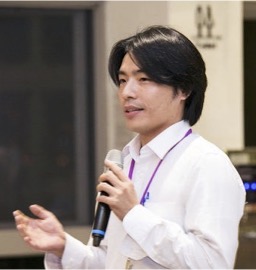Talk Abstract
Nucleic acids encode genetic information about life, while proteins support the activity of all lives. Proteins exert biological functions through their structures. Because of the high cost of structure determination, computational protein structure prediction (PSP) has been a dream of scientists since the 1970s. Given accurate PSP, efficient drug design, protein engineering, and biomaterial developments will all be achievable. Artificial intelligence (AI) techniques are quickly evolving, and their application in PSP is astonishing. AlphaFold2, the PSP AI algorithm developed by Google DeepMind, has achieved ~87% accuracy in the 2020 CASP (Critical Assessment of PSP) competition, so much approaching the theoretical upper limit in structure prediction. Protein secondary structure prediction is an important intermediate step/concept applied in most PSP systems, inclusive of the AlphaFold2. Based on his experiences in secondary structure prediction, Dr. Wei-Cheng Lo will analyze whether our dream about PSP has been achieved. Regardless of the answer, Dr. Lo hopes that the information he provides will help move forward protein structure prediction and all the related biotech fields.
Speaker Biography
Dr. Wei-Cheng Lo is a structural biologist long been devoted to developing new protein engineering techniques and related computational algorithms. Recently, he published several papers on protein secondary structure prediction and structure prediction for circularly-permuted proteins. The prediction strategies he developed can significantly enhance the speed and accuracy of machine-learning-based protein structure prediction algorithms. In this lecture, Dr. Lo will analyze whether the 50-year-old dream of scientists about protein structure prediction has been achieved.

